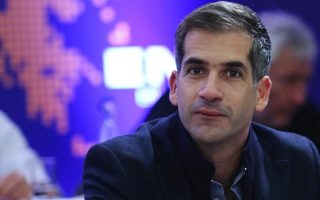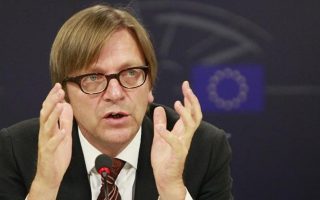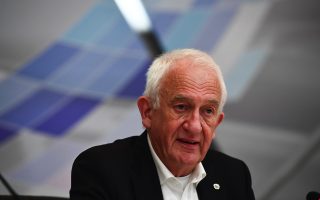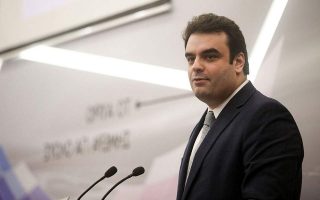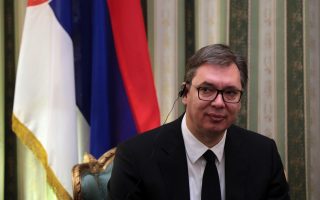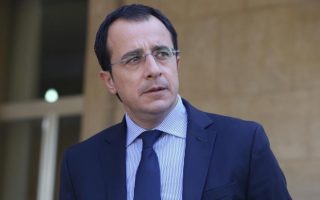Athens ‘very positive’ on North Macedonia’s European path, Osmani says
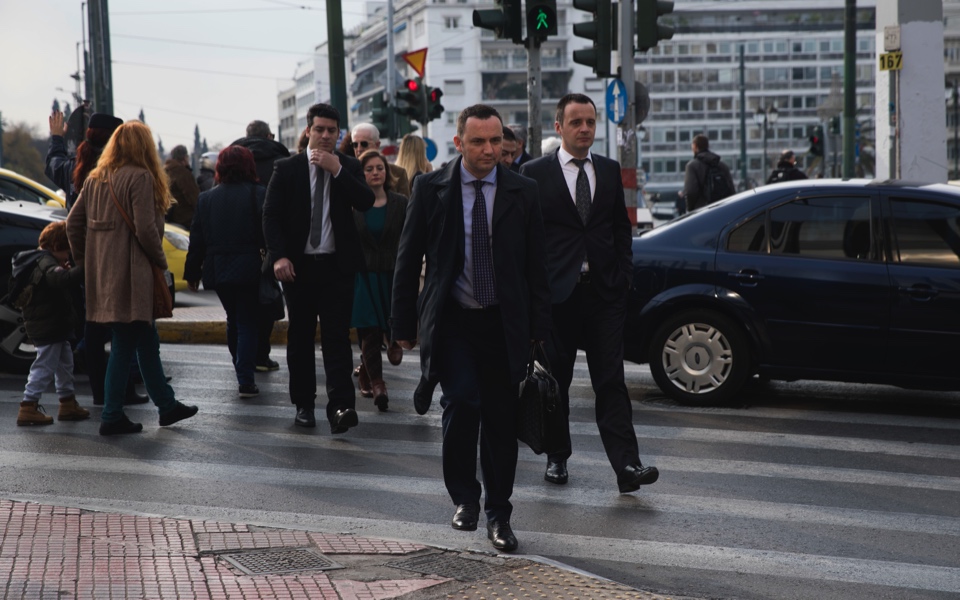
The government of North Macedonia was pleasantly surprised by the support lent by Greece's conservative government in last year's European Union summit when France refused to let the country (and Albania) start talks on joining the bloc, North Macedonia’s Deputy Prime Minister for European Affairs Bujar Osmani told Kathimerini recently in Brussels.
"Greece had a very positive position during the October summit. I emphasize this because it was represented by the new government and everyone feared there would be a change in attitude. But there was absolutely full support on starting accession negotiations,” he said.
Osmani, who is the spokesperson for the Albanian Democratic Union for Integration (DUI), cites his country's new partnership with the Hellenic Air Force within NATO as an indication of strengthening bilateral relations. He said the Prespes accord, which ended a decades-long dispute with Athens over the country's name, is “a strategic partnership agreement” which creates “infinite possibilities for cooperation.”
He acknowledged, however, that the work of the committees to change school curricula and textbooks and to resolve issues relating to trademarks has “slowed down” as the country has entered a pre-election period.
At the same time, work is continuing, said Osmani. “The idea was to depoliticize them, to leave the work to the experts,” he explained, noting that the Prespes accord, a friendship treaty signed with Bulgaria and a bill expanding the official use of the Albanian language are considered by his party as “irreversible.” He added that DUI will be “the guarantors of these three agreements,” no matter which party wins the next election.
Former prime minister Zoran Zaev, who heads the Social Democratic Union of Macedonia (SDSM), called a snap parliamentary election for April 12 after the EU failed to give the country a date to start accession talks.
Osmani said he would like to see the leadership of the right-wing VMRO-DPMNE follow in the footsteps of Greek Premier Kyriakos Mitsotakis, by pledging to respect the Prespes accord if it is elected.
Discussing North Macedonia’s expectations of the next European Council summit, scheduled for March 26 and 27, the deputy prime minister said that if the 27 leaders failed again to agree on a date to begin accession talks, this will have “a major impact” on the outcome of the election in his country.
“It will constitute interference in the result,” he said. “The difficult decisions of this mandate – the agreements with Greece and Bulgaria… were based on the understanding we had with the EU that if we delivered on our pledges, they would too. The only logical outcome of the positive narrative we have created, in coordination with the EU, during this mandate, is the opening of accession talks.”
Osmani described the turmoil in North Macedonia after the European Council shot down Skopje's hopes last October. “The decision caused shock and frustration. By resolving the name issue, we believed that we were seeing light at the end of the tunnel. It turned out to be the train coming to crush us.”
Public support for accession, he said, although still very high, has slipped below 80 percent for the first time.
On the bright side, Skopje has seen “an unprecedented wave of solidarity from Europe” since the summit, ranging from former EU officials Donald Tusk and Jean-Claude Juncker to German Chancellor Angela Merkel, Osmani said.
The haste with which France rushed to submit a new proposal on the accession methodology after the summit “was indicative of their unease,” he added. “So we remain optimistic, but cautiously so, given what happened in October.”
